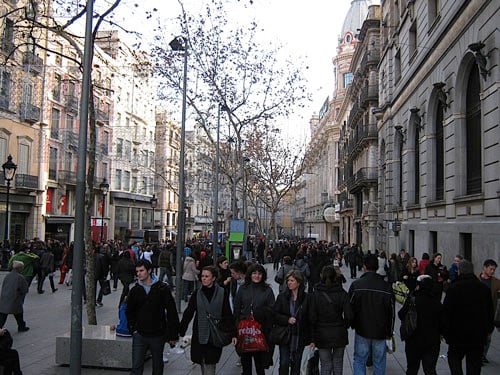Why am I so tired?
Modern society is being hit by an epidemic of fatigue. It is easy to think that being tired is simply the result of trying to live in the modern world, with its bustle, its speed, and its stress, but if we are honest with ourselves we have to admit that the greater truth is that we create our lifestyle to suit ourselves—it doesn’t create us.

To answer the question of ‘why am I so tired?’, we must also ask why would we create a lifestyle that allows us so little opportunity to rest, and the answer must be that we don’t want to slow down; we don’t want to stop and think; we don’t want to ever have to sit still and face ourselves. Indeed if we are honest with ourselves, then we have to acknowledge that sitting still without any distraction fills us with a sense of dread. The Danish philosopher Soren Kierkegaard said, ‘there is not a single human being who does not despair at least a little, in whose innermost being there doesn’t dwell an uneasiness, an unquiet, a discordance, an anxiety in the face of an unknown something, or a something he doesn’t even dare strike up acquaintance with…’
Because we don’t dare strike up an acquaintance with this anxiety, we need to keep moving: more distraction, more success, more caffeine—whatever it takes—and as a result of this constant need to avoid facing ourselves; of being constantly driven by this anxiety, it is inevitable that we grow tired.
So an even deeper question than ‘why am I so tired?’ that needs to be asked is what is the nature of this anxiety – what is it that can be so bad that we run ourselves to exhaustion rather than facing it?
The truth is that at the core of our anxiety lies a profound insecurity about our self worth, about our less-than-ideal human condition no less. Biologist Jeremy Griffith explains that because we humans are unable to explain why we are selfish, angry and destructive when the ideals are to be loving and selfless, the only conclusion we could reach—if we let ourselves think deeply enough about it—was that we were bad. So we haven’t been able to think deeply about it—indeed we have designed our lives to ensure that we don’t have to, which understandably leaves us incredibly tired.
In order to truly rest and get some relief from our tiredness, we first needed to be able to understand humans’ extraordinary capacity for ‘good and evil’, and in particular the origin of our selfish and aggressive behavior. We need compassionate insight into our seemingly non-ideal human behavior. Most wonderfully, biology is now able to provide this full explanation of our seemingly non-ideal condition. This comprehensive explanation of the origin of our paradoxical behavior, namely the human condition, is available in this Introductory Video Series and Part 3 of Freedom: Expanded Book 1, by Jeremy Griffith.
With the explanation of the human condition now available, we are able to see that humanity’s current upset state, characterised by angry, alienated and egocentric behaviour, is the result of a two million year old, unavoidable clash between our gene-based instincts and our emerging nerve-based consciousness.
Now, after being held hostage by our inability to defend ourselves for so long, our upset can at last subside, and the human species will know true peace.
The former president of the Canadian Psychiatric Association, Professor Harry Prosen, recognised the importance of Griffith’s explanation to the human race, saying, ‘I have no doubt this biological explanation of Jeremy Griffith’s of the human condition is the holy grail of insight we have sought for the psychological rehabilitation of the human race.’



Please wait while the comments load...
Comments